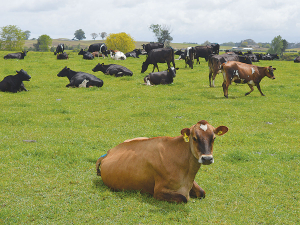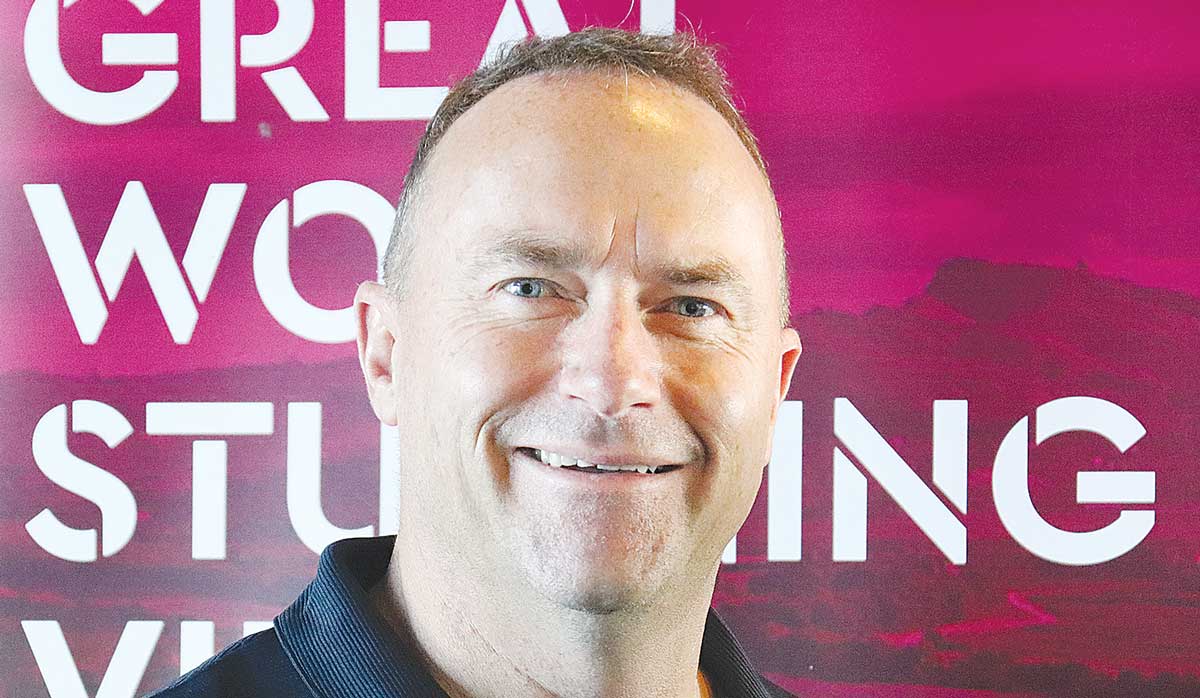NZ Catchment Groups Thrive with ‘Source to Sea’ Approach
The most successful catchment groups in NZ are those that have 'a source to sea' approach.
 When it comes to diversified pasture firstly farmers should think about functionality, according to Massey University.
When it comes to diversified pasture firstly farmers should think about functionality, according to Massey University.
What do you want from your pasture? That's the question top Massey University scientists were asking farmers at the 'Science for Farmers' site at Fieldays recently.
The Massey portion of the site was set up as part of the Whenua Haumanu research project which compares diverse and standard pastures, and regenerative and contemporary management. This is funded by the Ministry for Primary Industries (MPI) and led by Massey University and includes partners such as Lincoln University, many of the CRIs, Beef + Lamb NZ and DairyNZ.
The setting up of the site was an initiative by MPI's Dr John Roche, the head of their on-farm support team. Roche has experience of the work that Teagasc, the Irish Agricultural Institute, does in his native Ireland by getting scientists and farmers to freely engage. As a result, the initiative for the site was based on his experience in Ireland.
The aim was to connect farmers and scientists, much like they did many years ago at Fieldays. Back in the 1970s and '0s when MAF's Ruakura Research facility held a two-day conference ahead of Fieldays. This enabled farmers to see first-hand the agricultural research being done and talk to scientists.
What Massey did at the Fieldays was to create a miniature farm where people could see the various types of diverse pastures they are studying. Massey brought swards of different pasture types up from their research plots and laid them out for farmers to see. They also erected a fence around the plots so farmers could lean on it and chat away as they used to 30-plus years ago at the Ruakura Farmers Conference.
The leader of the Whenua Humanu project, professor of dairy production, Danny Donaghy, says they brought along several pasture mixes, ranging from the standard ryegrass/clover to one containing 18 different grasses, legumes and herbs. He says the reaction to the site was phenomenal and his team were flat out engaging with farmers and members of the public. He says a lot of farmers were keen to share their experiences on pasture diversity and survival.
Donaghy says many were interested in different pasture species, especially given that in the recent summer dry weather, the standard ryegrass/clover has not performed overly well.
"But the key point I kept making when it comes to diversified pasture is that firstly farmers should think about functionality - what do they want from their pasture. Is it greater summer production or lower use of nitrogen fertiliser? Once they have answered that question, then look at the pasture options available," he says.
Donaghy says the Whenua Haumanu project has just finished the second of the seven years it is designed to run for. He says the site at Fieldays was a chance to give farmers an opportunity to see what is being done, but equally to let them engage with Massey scientists. He says they are steering people to their website and will be putting out regular updates.
 |
|---|
|
John Roche, MPI |
The Director General of MPI, Ray Smith, says the purpose of the site is about getting a wide range of information out to farmers on major issues such as greenhouse gas emissions, making them aware of the tools available to them and what is coming down the pipeline.
"We have had really positive feedback about the project from the crowds who have visited the site," he says.
Beyond Fieldays
The head of the Agriculture and Environment School at Massey, Professor Paul Kenyon, says the Whenua Haumanu project is the most comprehensive pastoral research project ever undertaken in NZ.
He says it involves everything that is going on under the ground, through to the plants and animals, right through to taste panels to determine the quality of the product produced. He says this is a rare opportunity to research a whole gambit of matters covering the whole system – not just ‘component research’ which has a much narrower or silo-style focus.
Kenyon says the project involves scientists and researchers from a wide range of disciplines including food research and technology as well as farm systems. He says the project is also helping bring on the next generation of scientists because they currently have about twenty PhD and Masters students on the project.
As well as Massey, research on diverse pastures is being carried out at research stations in Northland, Taranaki, Hawke’s Bay and Canterbury.
“We also have international collaborations and are working with researchers from Teagasc in Ireland, Melbourne University and Tasmania. All are looking at pasture diversity and doing similar research to us, which means we have a huge pool of data we can share for our mutual benefit,” he says.
Kenyon says working with Teagasc, the Irish agricultural research organisation who are dealing with similar issues, is a massive benefit to both countries. He says it makes for quick science because, by working collaboratively, you can get two seasons in a year.
In addition to the interaction with farmers, Kenyon says the Science for Farmers site also supported the other Massey University site at Fieldays to attract young people and those wishing to make a career change to do a degree at Massey. He says an added incentive is that the university has some very good scholarships on offer.
Global trade has been thrown into another bout of uncertainty following the overnight ruling by US Supreme Court, striking down President Donald Trump's decision to impose additional tariffs on trading partners.
Controls on the movement of fruit and vegetables in the Auckland suburb of Mt Roskill have been lifted.
Fonterra farmer shareholders and unit holders are in line for another payment in April.
Farmers are being encouraged to take a closer look at the refrigerants running inside their on-farm systems, as international and domestic pressure continues to build on high global warming potential (GWP) 400-series refrigerants.
As expected, Fonterra has lifted its 2025-26 forecast farmgate milk price mid-point to $9.50/kgMS.
Bovonic says a return on investment study has found its automated mastitis detection technology, QuadSense, is delivering financial, labour, and animal-health benefits on New Zealand dairy farms worth an estimated $29,547 per season.
OPINION: Staying with politics, with less than nine months to go before the general elections, there’s confusion in the Labour…
OPINION: Winston Peters' tirade against the free trade deal stitched with India may not be all political posturing by the…